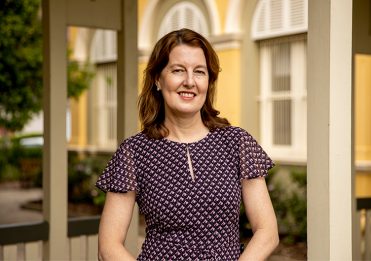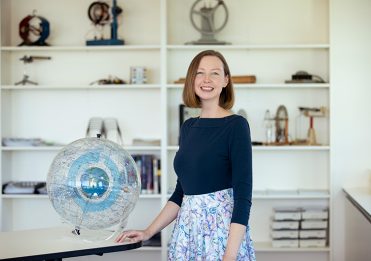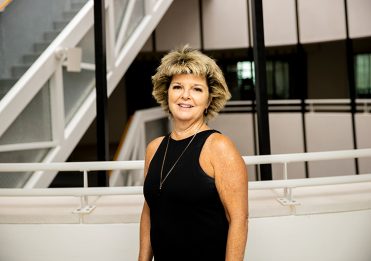I grew up on a hobby farm near Rockhampton and my parents worked at CQUniversity—my mum was a nursing lecturer and my dad was the Telecommunications Manager. I don’t recall ever explicitly making the decision to become a teacher, nor do my parents, but I guess you could say teaching runs in the family.
I come from a long line of educators on both sides of my family, and education has always played such a large role in my life—my older brother, who’s only 18 months older than me, taught me to read, and of course, Mum and Dad read to us each night.
I dabbled in a bit of everything when I was younger, but reading was unlike my other co-curricular activities. I found comfort in novels, like Roald Dahl’s, which allowed me to imagine a life very different to ours in rural Australia—all these years later I still have my copy of The BFG!
Growing up, I attended a very academically focused school—our Year 11 camp involved travelling to Brisbane to tour universities. However, by then I had already decided I wanted to study a Bachelor of Education and Arts at The University of Queensland.
I have been in girls’ education my entire career. In my previous role, as an English specialist, I was tasked with helping write the new Literature syllabus as part of the Queensland Curriculum and Assessment Authority’s (QCAA) Expert Writing Team. Although my love for Literature had been long established, my work for the QCAA deepened my appreciation for the subject.
What I like most about Literature, and the reason I’m so pleased it’s become its own subject, is that it allows you to rehearse different ways of being in the world, just by reading. It extends beyond the transformative experiences I had when I was younger. Literature forces you to consider other perspectives, and allows our students to see how they can contribute, where the problems are in the world, and how to argue and critically analyse.
In my classes, girls are encouraged to ask, debate and argue with me and each other. I don’t expect them to agree with my thinking, nor should they just because I’m the teacher. I think it’s an important lesson they can use in the wider world—to challenge the status quo—and that they can, and should, respectfully ask about decisions they might not agree with or that seem unjust. These are the skills I know my students learn from the analytical thinking we practice in Literature classrooms.
In Year 11, girls read Margaret Atwood’s The Penelopiad. She’s my favourite author, and I think most of the girls enjoy the text. I love her writing, her ability to challenge convention in often subtle ways, and of course I appreciate her female protagonists. There’s a consistent theme of strong female leads in my life—my mum, stepmum and my colleagues. Here at the School, I’m surrounded by empowered women, female mentors, and girls—it’s one of my favourite things about BGGS. I’m constantly challenged to question things, and I too ask this of my students. I do hope the lessons they’ve learned through Literature, and more broadly here at Girls Grammar, will equip them with the skills to mentor and support future generations of women—just like the important women in my life have done so.




